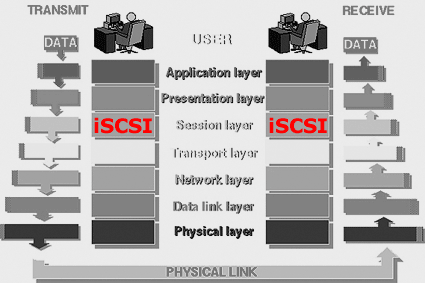Flexible Data Storage Across Networks: iSCSI put to the Test
Get Tom's Hardware's best news and in-depth reviews, straight to your inbox.
You are now subscribed
Your newsletter sign-up was successful
Testing ISCSI-based Network Storage Solutions
Anyone who has ever dealt with server and network administration in a corporate environment has encountered the need to smoothly add storage capacity using existing infrastructure. Although the resulting solutions usually do the job, they tend to be rather expensive and are very rarely flexible.
19" systems often don't offer enough space to accommodate additional hard drives. This leaves as the only alternative hooking up storage modules to servers in a 19" rack using the SCSI interface or Fiber Channel connections. However, it is not always advisable to mix critical file-server functions with other jobs - even tasks as simple as storing data.
Big tower computers could be used to hold additional hard drives and even controllers to be added into the system. Again, however, this would entail the mixture of server and storage tasks mentioned above, plus the work involved in the installation.
For many companies, the ideal storage solution needs to offer great flexibility. It should be easy to implement, usable in several locations and in conjunction with various systems, and, finally, scalable. Of course, performance should not suffer appreciably either. The answer to this seeming holy grail of storage is called iSCSI - Internet SCSI. This solution embeds the SCSI protocol in TCP/IP packets, making it possible to use the most common enterprise storage interface over the existing network infrastructure. It also represents a consolidation of storage subsystems.
Get Tom's Hardware's best news and in-depth reviews, straight to your inbox.
Current page: Testing ISCSI-based Network Storage Solutions
Next Page How ISCSI Works
Patrick Schmid was the editor-in-chief for Tom's Hardware from 2005 to 2006. He wrote numerous articles on a wide range of hardware topics, including storage, CPUs, and system builds.
